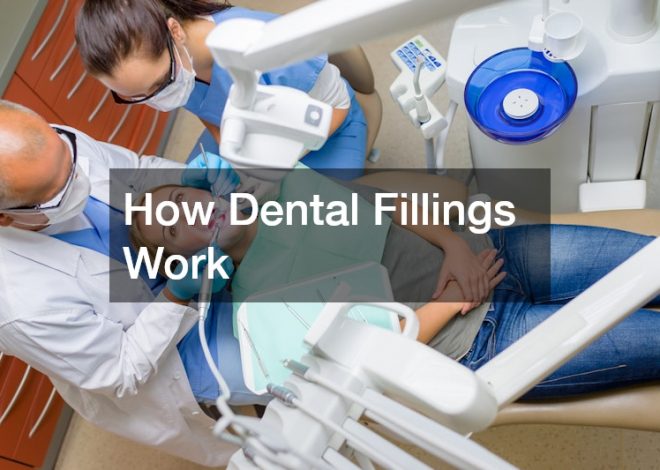
How to Start Your Own Dental Practice

With enough experience, any dentist can have their own practice. They just need to know where to begin and be ready for hard work. It will be a challenging journey, but this helpful checklist will start off your plans. Let’s discover everything you need to know to get your own dental office off the ground. Remember, there’s a lot you must do before finding your first client.
1. Find a Cleaning Service You Can Trust
The first step is to look for a trustworthy medical building cleaning service. Any dentist will have particular garbage that can’t be cleaned up so easily. Some waste components are toxic and shouldn’t be disposed of with other materials. You need a specialized company, which can be found with a simple internet search. Check reviews and vital information, such as their licenses, bonds, and insurance.
Make a list of all the services that follow regulations and narrow your search as much as possible. Once you’re left with a few choices, look at specific things that will set each company apart. For example, it’s better if some of their clients also have dentist offices. This means they already know how to handle this industry. Having more experience is always an advantage. You should also compare each business’s prices and what they offer versus the competition.
Ask for a copy of their cleaning service agreement and determine their goal when working with you. It is crucial to find a company dedicated to meeting your needs. If more than one business has all the attributes you’re looking for, you can focus on other aspects, such as the website’s appearance and how they treat their potential clients by phone and email.
2. Customize Your Supplies

Any dentist must understand all the supplies needed for daily work, but you may not know everything required for a professional office. A dental practice needs to have other supplies and equipment, like paper, pens, cleaning products, computers, etc. You also need several tools for preventative care and treatments and enough room for sanitation and sterilization equipment. Some of your dental tools may need to be ordered from a custom plastic fabrication company.
It depends on what you offer at the practice. For example, typical dental supplies include water cups, tissues, magazines, handpieces, and smaller supplies like drills and probes. Chairs are also essential; you need several for hygienists, assistants, receptionists, etc. Consider the services you offer for your patients and how they’ll be comfortable, meaning eyeglasses, bibs, mirrors, etc.
Some practices offer goody bags to create customer loyalty. You can even get those customized with your dental office’s logo; each item, like tubes of toothpaste, toothbrushes, flosses, etc., can also have your brand. However, the most important part of customizing is providing all the necessary tools your professionals will need to assist all clients.
3. Get the Building Inspected
You can’t start any kind of medical practice without getting a proper inspection of the building and the office space you’ve rented. The area needs to follow strict city building codes and regulations. Fortunately, you can hire licensed professionals to identify issues and dangers. It’s much better to be proactive than wait for an incident that could result in injuries and deaths. These things often lead to expensive lawsuits.
It’s also wise to get particular checks, like an asbestos inspection, if the building is decades old. Asbestos was used often in construction materials until its negative health consequences were discovered. Meanwhile, other facilities just require a little maintenance and repairs to function. Fixing these problems is much better than waiting for something to go wrong. Remember to look for licensed and experienced inspectors.
They will provide a list of their findings with photos so you can understand what needs to be done before you can open your dental practice. Some items are even marked based on the severity of the problem and how urgently they need to be addressed. Any competent dentist will pay thorough attention to each issue and handle it by hiring the correct contractors.
4. Get Insured

All medical practices need insurance, and their policies must cover several situations. You need to plan and know precisely what specialties you’ll offer and how many people will work in your practice. Afterward, you can get proper dental insurance that will protect the building, the daily treatments, and even malpractice. Some policies may even pay you for damaged glass, signs, etc.
Dental insurance will mostly cover dental chairs, specialty equipment, computers, other machinery, and any stock kept inside the property. It can also protect business money in the building as well as during transportation. You should also check for protection against shutting down the practice for a while. That’s called business interruption. Ultimately, you also need insurance to cover your services in case of malpractice or other problems.
For example, you need to be protected if something goes wrong during cleanings, urgent care, tooth extractions, etc. You can even get policies to safeguard against problems with your employees. Liability insurance works against several claims. You may be covered if one of your workers steals money or goods from the practice.
5. Get a Lawyer
Just like you need to be covered by several things through insurance, you will need legal guidance from a law firm. Any dentist must know that retaining a lawyer is in their best interest. You’ll need legal advice and help with intellectual property rights and contracts. It would be smart to hire a dental attorney to help you avoid malpractice claims, evaluate risks, and defend your business if a lawsuit can’t be settled out of court.
You can also hire them for lease agreements and information on selecting the correct business strategy to secure your dental practice. Many can help file to obtain licenses and credentials, which must be up-to-date. The best part about getting this kind of lawyer is being able to focus on other matters while they get the legalities out of the way.
Remember, you’ll also be the boss, meaning employment law is a concern. Everything needs to be by the book to avoid disputes, which an attorney can handle. They can create employee handbooks, contracts, and compliance rules to obey state and federal labor laws. A lawyer is your right-hand person while opening any business.
6. Hire a Waste Service
As mentioned above, all dental offices will procedure waste, from sharp objects to pathological, infectious, and pharmaceutical components. Syringes, needles, and scalpels can’t be thrown away carelessly. You may also deal with napkins and wipes with fluids and other bio-matter. Therefore, it’s imperative to have sanitary waste removal, meaning you need to hire a waste management company.
Any dentist will work with this business to develop protocols so that all waste goes into the correct containers. The management experts will take it away to dispose of at the correct facilities. You’ll need to teach your employees exactly what to do, and it would help to include every waste disposal rule in a handbook. Some medical spaces have signs on their walls to remind everyone of proper procedures.
The waste management business may also provide biohazardous waste bags and other containers for special situations. You’ll have to detail your services to come up with a plan. Many can offer pharmaceutical disposal kits where unused or expired medications can be disposed of safely. Failing to follow proper waste disposal could put the safety of your employees and clients at risk. Trying to handle waste yourself is not a good idea.
7. Ensure Your Patients Have Privacy
Any dentist should understand that a practice needs to be client-centric. They must be your priority, and privacy is a big issue. Some people are already scared of going to the dentist, but they may feel more secure if you make a comfortable and private space for them. The reception area should be welcoming to ease the patient’s concerns.
You can consider interior windows to let natural light in, which is much more relaxing than most medical offices’ harsh LED white lights. Treatment rooms should be like that, too. A person must feel tranquil, which can only happen if they aren’t exposed. They won’t like others ogling or walking into the room while they sit with their mouths open. Aside from creating a comfortable interior, consider adding a few rules as well.
Other doctors or technicians shouldn’t be able to come in and out as they please while a patient is on a dental chair. Unlike other medical appointments, dental patients won’t have to remove their clothing, but many will feel uncomfortable with others in the room who don’t need to be there. Think about privacy while making interior design choices and planning your clinic’s protocols.
8. Ensure Your Electrics Are Up to Date

One of the most important aspects of a dental practice is electricity, which is required for almost all dental tools. You need to stay up-to-date with dental equipment and wiring so your patients can receive the best care possible. That’s one of the reasons why getting a building inspection in the beginning is essential. You must have proper wiring and outlets in dental rooms.
Any dentist should consider hiring an electrician service if their rented facility doesn’t meet all their requirements. Additionally, all equipment should be updated because the latest technology always has better electric usage and will make daily activities easier. Consider buying the best X-ray systems, intraoral cameras, dental lasers, cone beam computed tomography (CBCT), and electric handpieces.
Some of these tools and equipment require different voltages, and you need everything installed perfectly to prevent accidents. Get an expert to check things out and mark all outlets so people know not to connect certain things if the voltage is too high. Moreover, you shouldn’t have any electrical issues if you keep your dental instruments upgraded.
9. Hire a Plumbing Service
Water is a dental office’s second most important utility, meaning your practice needs excellent plumbing. Any issue with flowing water could result in closing for a day or more. Any dentist knows that’s not an ideal scenario. Therefore, you should always have a plumber on your contact list; someone who can handle dental equipment issues would be preferable. They could determine why water is not reaching your tools.
Most importantly, they’ll handle proper drainage, which is the biggest plumbing concern for a dental office. Unlike a house or a regular office, dental practices produce liquid waste with particles and greasy components that could clog drains. You must ensure your plumbing system always flows correctly because one clog could ruin everything. Dental practices also require a self-contained water system, which needs to be installed by professionals.
Water supply lines are needed for each treatment room. Furthermore, you need water in bathrooms, kitchens, break rooms, etc. The only way to keep things running smoothly is to hire a licensed plumber from the beginning. Some plumbing companies may also offer discounts on maintenance and certain repairs.
10. Upgrade the Facilities

Any dentist knows patients want to visit nice medical offices. First impressions are important for all businesses. It’s smart for any professional to rent a space that has previously been used as a dental clinic. You’ll know that it already has proper plumbing, wiring, and more, so you can skip some initial steps. However, you still need to upgrade the area. People appreciate a place that looks brand-new.
Consider your aesthetics and remodel what you can. A countertop company can change the reception desk and other components so the entire office matches. Warm colors are soothing, but your choices will depend on your type of practice and clients. Drawings and colorful walls are great if you’re a pediatric dentist. Get better chairs or change the upholstery. People don’t want to sit in dirty and worn waiting rooms. Paying attention to detail is more crucial than you can imagine.
However, be careful with some of your choices. Don’t pick things that will prevent you from upgrading or expanding your practice in the future. Focus on the most important aspects that will impress and attract patients. Meanwhile, your machinery should also be upgraded. Better equipment will always make the experience better for clients. Any update that could reduce painful or long procedures will please people.
Now that you understand the first steps any dentist should take while opening their practice, you can begin researching online and calling as many services as possible. Never hire people unquestioningly, and don’t pick the first options available. You can get better discounts for your office if you dig a little deeper.


